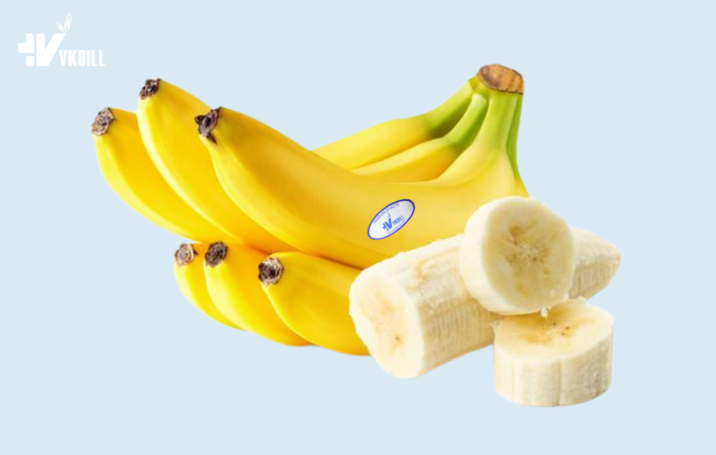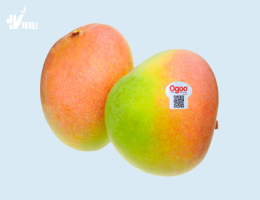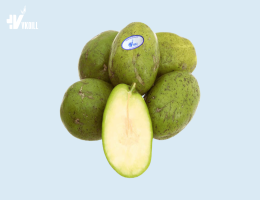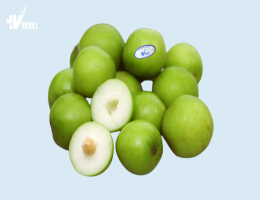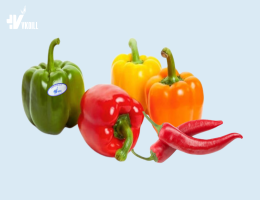CAVENDISH BANANA
The Cavendish banana originated from Southeast Asia, particularly Malaysia and Indonesia. It emerged as a replacement for the Gros Michel banana due to its resistance to Panama disease. Named after the Cavendish family, prominent English aristocrats, Cavendish bananas became the dominant commercial variety due to their disease resistance and favorable characteristics. Today, they are cultivated globally in tropical and subtropical regions and are a staple fruit in many countries.
-
Description
-
Reviews (0)
The Cavendish banana's scientific name is Musa acuminata 'Cavendish'. It is a cultivar of the species Musa acuminata, which is one of the primary species of bananas cultivated for human consumption. The Cavendish banana is one of the most common and widely consumed banana varieties globally, known for its sweet flavor and creamy texture.
Cavendish bananas are an important crop in Vietnam, contributing to both the domestic market and international trade, while also supporting the livelihoods of farmers and rural communities.
Vietnamese Cavendish bananas are produced according to international quality and safety standards to meet export requirements. This includes adherence to Good Agricultural Practices (GAP), proper handling, packaging, and compliance with phytosanitary regulations.
Here are the approximate nutritional facts for a medium-sized Cavendish banana (about 118 grams):
- Calories: 105
- Carbohydrates: 27 grams
- Dietary Fiber: 3 grams
- Sugar: 14 grams
- Protein: 1 gram
- Fat: 0 grams
- Vitamin C: 10 mg (about 17% of the Daily Value)
- Potassium: 422 mg (about 12% of the Daily Value)
- Vitamin B6: 0.5 mg (about 25% of the Daily Value)
- Magnesium: 31 mg (about 8% of the Daily Value)
Vkoill Group specialize in exporting fresh cavendish banana to international markets, namely: China, Middle East, HongKong, Korea, Japan, Malaysia, EU, ...
Fresh Cavendish banana that provided by Vkoill Brand maintain these advantages:
– Uniform Size and Appearance: Vkoill controls strictly from selecting fruits to ensure uniformity in size, shape, and appearance. They are typically medium to large in size, with a slightly curved shape. Uniformity enhances the visual appeal of the bananas and meets the standards set by import regulations and consumer preferences.
– Optimal Ripeness: Vkoill's cavendish bananas are harvested at the appropriate stage of ripeness to withstand the rigors of international transport while still reaching consumers in optimal condition. They are typically harvested when they are green and firm but have reached sufficient maturity to ripen naturally during transit or upon arrival at their destination.
– Packaging: Vkoill's cavendish bananas for export are packed in sturdy and protective packaging to prevent damage during handling and shipping. Common packaging materials include corrugated cardboard boxes, plastic liners, and cushioning materials such as foam or paper.
– Quality Control: Before export, Vkoill's Cavendish bananas undergo rigorous quality control measures to ensure they meet the required standards for freshness, appearance, and taste. This may involve visual inspection, sampling, and testing for factors such as ripeness, size, color, and sugar content.
– Cold Chain Management: To maintain freshness and extend shelf life, Vkoill's cavendish bananas are typically transported under controlled temperature conditions as part of a cold chain system. This helps slow down the ripening process and reduces the risk of spoilage during transit.
– Phytosanitary Regulations: Vkoill's Cavendish bananas intended for export must comply with phytosanitary regulations and certification requirements imposed by importing countries. This may include measures to prevent the spread of pests and diseases, as well as documentation certifying the bananas' origin, quality, and safety.
– Sustainability: Increasingly, Vkoill Vietnam prioritize sustainable and environmentally friendly practices in banana cultivation and production. This may involve adherence to certification schemes such as Fairtrade or Rainforest Alliance, as well as initiatives to minimize water usage, reduce pesticide use, and promote biodiversity conservation.
0
There are no reviews for this product.


